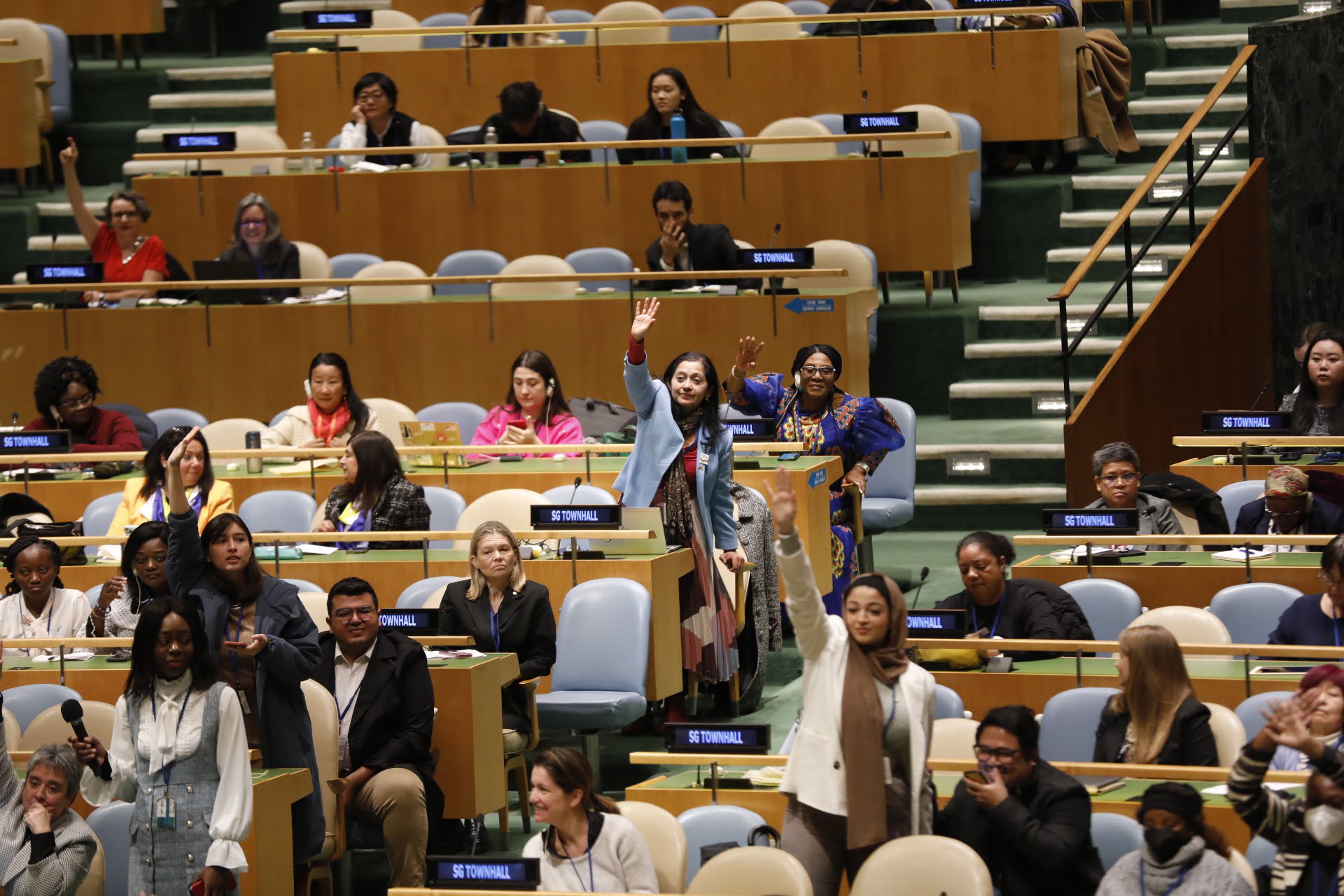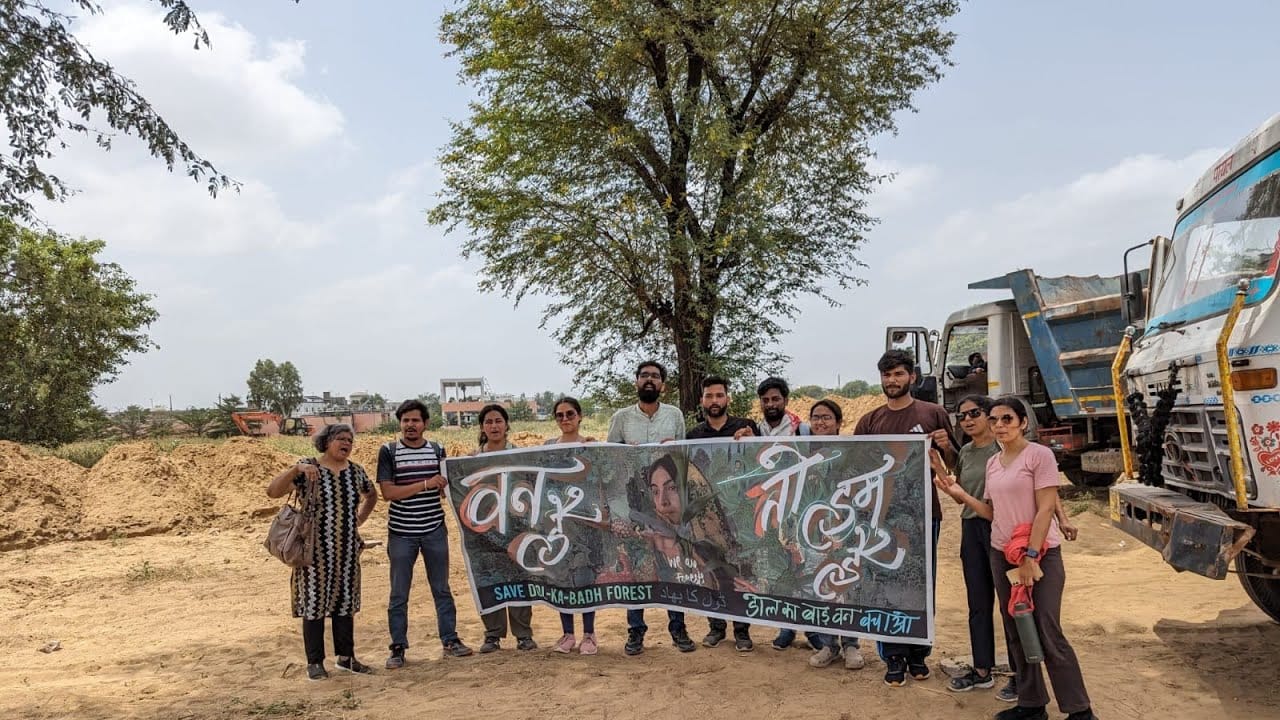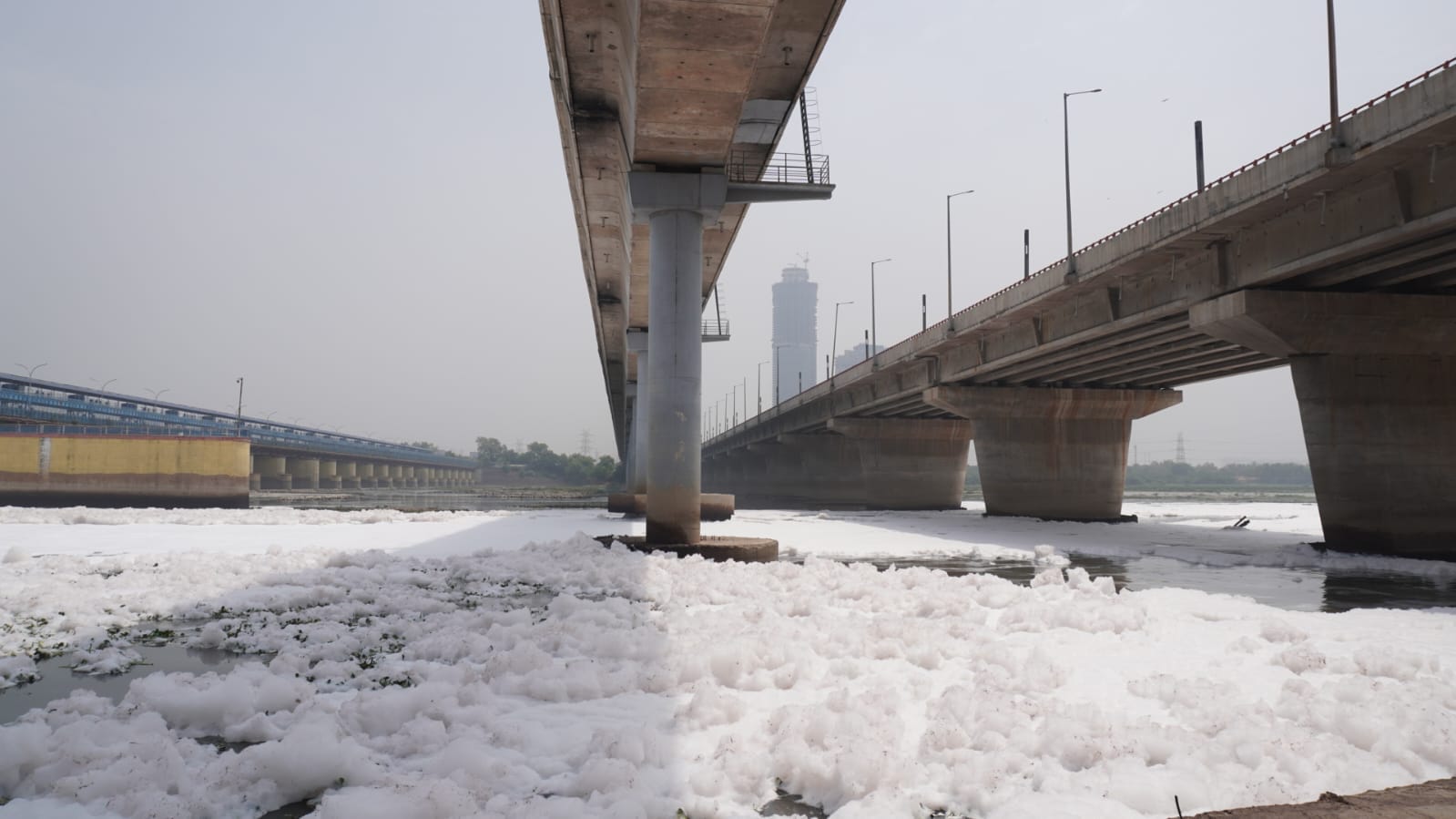With a focus on achieving gender equality through technological innovation, the Commission for the Status of Women brought much-needed attention to the gendered experiences of the digital age. The conference took place from the 6th to the 17th of March, in New York and brought together member states and organisational representatives to discuss how gender manifests in the utilisation of the internet and other technologies. However, the CSW could have brought more attention to the critical role that technology plays in the environmental movement, at the specific intersection of gender and climate justice.
A closer approach at understanding the ecological impacts of digitalisation is the need of the hour as the climate crisis increasingly and disproportionately impacts gender minorities, especially cis and trans women, trans men, intersex and gender non-conforming people.
““Digital access can help communities stay informed about updated real-time weather conditions and monitor them, relevant evacuation orders, relief efforts, and other important information.”
Lekha Chacko, Digital Humanitarian and Disaster Management Coordinator
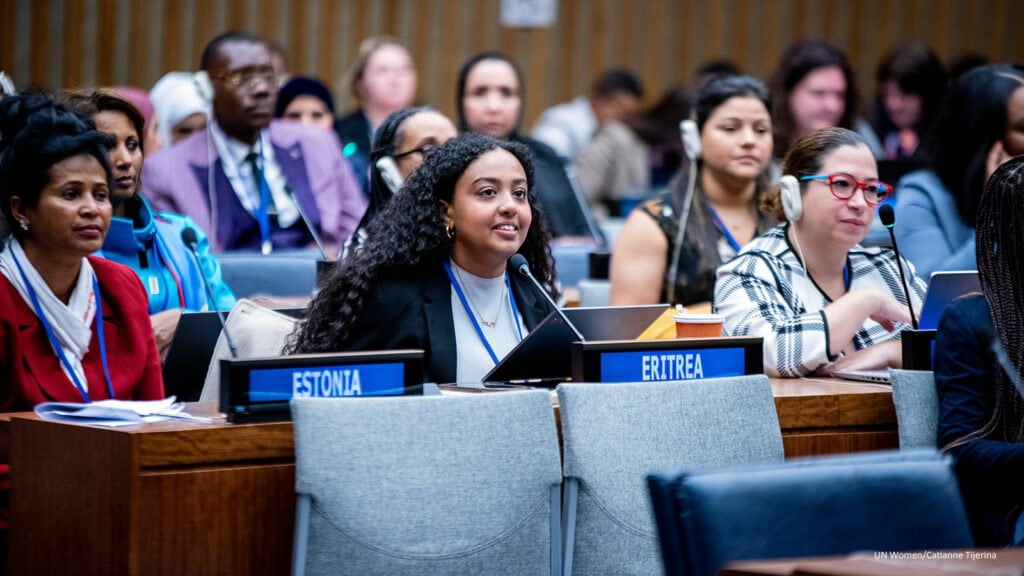
Broadening the scope of CSW’s understanding of gender is also critical. Still, the UN’s gender programmes often fail to recognise that the spectrum of genders as affected by cis-normative patriarchy is a lot wider than simply “women and girls”. UN-affiliated organisation Outright International’s Luiza Veado highlighted how the written specification of LBTQI+ rights in reports was brought to attention for the first time at the 67th CSW.
The scope of digital access and climate/gender justice
In conversation with FII, digital humanitarian and disaster management coordinator, Lekha Chacko elaborated on how critical access to information online can be for on-ground communities. “In any disaster situation, timely and accurate information is critical to ensure people’s safety and well-being,” she affirmed. “Digital access can help communities stay informed about updated real-time weather conditions and monitor them, relevant evacuation orders, relief efforts, and other important information.”
Also Read: Analysing The United Nations’ Environment Programme Annual Report 2022
By democratising information, the internet can also facilitate positive health for on-ground communities. Online spaces help people to “access healthcare services, including telemedicine and mental health resources. This can be particularly important in areas where physical access to healthcare facilities is limited. Without digital access, communities may be at a disadvantage in coping with and recovering from such (climate disaster) events.”
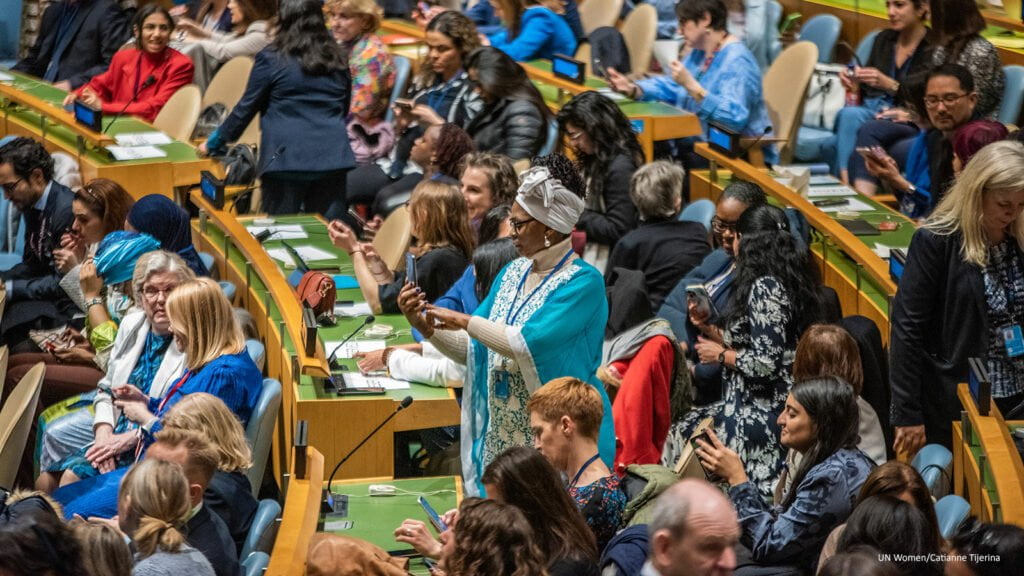
With women, queer communities and especially queer women facing increased inaccessibility to healthcare services, such information and communication tools are often vital for day-to-day well-being.
In crisis situations, like the COVID pandemic, digital tools facilitate cross-community communication and coordination, which supports well-coordinated relief efforts. When different people can share their specific needs, relevant expertise and resources can easily be provided through digital mechanisms.
Digital exclusion and technological inconsistencies
However, given that access to such information is often rampant with social and economic barriers, especially for people from marginalised genders, the risks in any situation are heightened. Not only is the physical technology of the smartphone or computer vital for accessible climate justice or disaster relief information, but also secure online spaces. Lekha elaborates also on how women, girls, and those from gender minorities “are often subjected to online harassment and bullying, which can make them feel unsafe and discourage them from participating in online discussions or seeking information.”
For many global south nations, these very same rural regions tend to be the site of large-scale extractivism. Filipino Human Rights Defender and representative of the Asia-Pacific Forum on Women, Law and Development, Joms Salvador, stated the ways in which environmentally-destructive mining in the Global South is still largely used “for parts of technological innovations in the Global North.”
In the context of climate disasters, this may additionally present as inaccessibility due to information being primarily available in English. Especially in rural regions, online information may not be available in the different vernacular languages necessary for the effective dissemination of information.
For many global south nations, these very same rural regions tend to be the site of large-scale extractivism. Filipino Human Rights Defender and representative of the Asia-Pacific Forum on Women, Law and Development, Joms Salvador, stated the ways in which environmentally-destructive mining in the Global South is still largely used “for parts of technological innovations in the Global North.” Often, the labour and the land in such regions are exploited to extract minerals necessary for not just communications technology, but also for technology traditionally considered as sustainable (such as Electric Vehicles.)
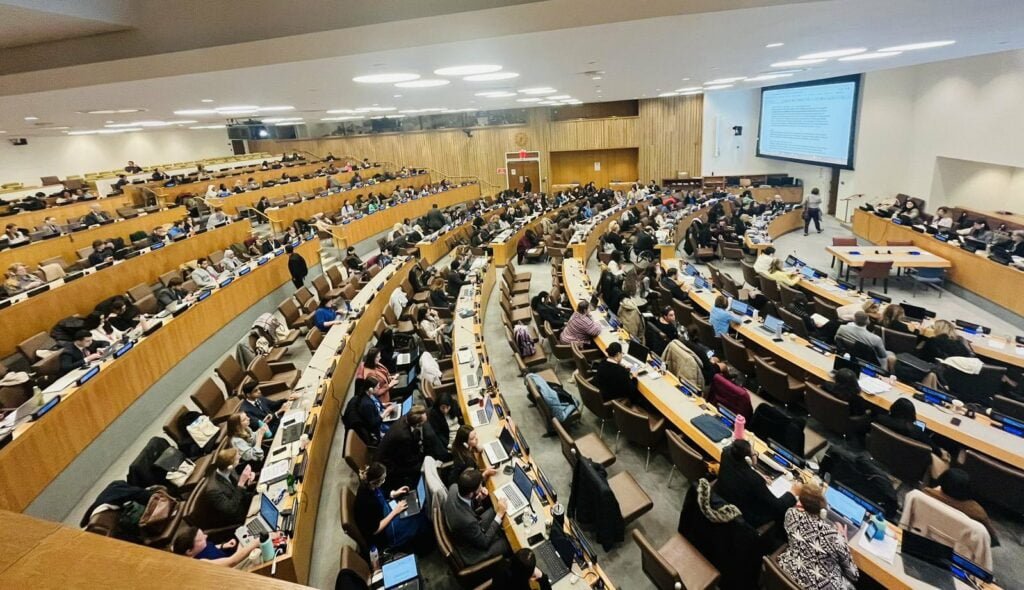
The people who are most affected by mining also tend to be young people from marginalised genders and, often, from tribal, caste-oppressed and Adivasi communities. Their land rights, health, environment and livelihoods are the first to be encroached upon by institutions with corporate interests. At the same time, their own indigenous science, knowledge and technology is excluded from discourse centred on elite “modernisation”.
Also Read: Environmental Crisis And Gender: The Effects Of Climate Change On Women’s Gynaecological Health
Such discussions on extractivism, as well as issues such as waste disposal “exports”, are then caught up in the complexities of geopolitics and globalisation—shifting the focus of the conversation away from the people being affected. In response, grassroots organisations and individuals are able to take to the internet to advocate for and defend their rights.
Rachel Kagoiya, the representative of the pan-African network FemNet, iterated the need to decolonise the digital conversation. With the location of the CSW67 in itself reflecting western-centrism, she questioned the mainstream understanding of technology. “When leadership is largely by cis men from the global north, we must understand: whose knowledge, whose technology, whose voices are being invisibilised?”
Yet, these very same communities often face undue and oppressive cyber-criminalisation under prejudiced laws, during digital campaigns. In India, a report published by The Bachchao Project, highlighted how women from marginalised communities faced acute technology-facilitated GBV, censorship, and insecurity in online spaces.
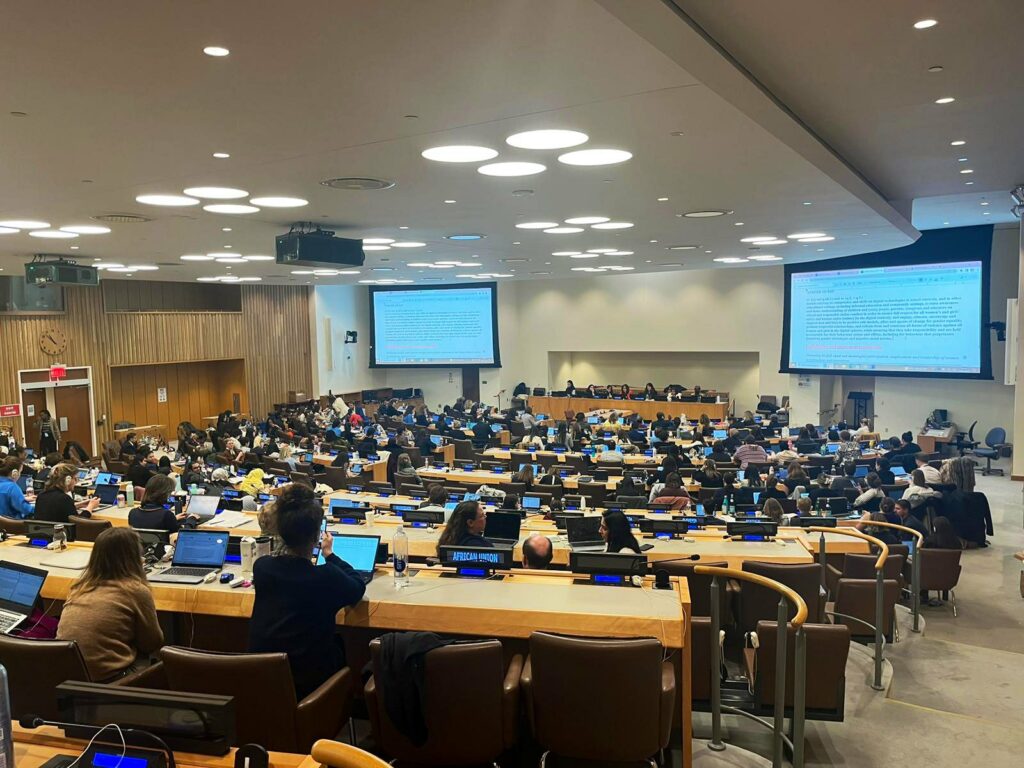
Big tech, big oil, coal and other large exploitative corporations work in similar ways, resulting in the further marginalisation of the most affected communities. Often, their own exploitation of things like data and natural resources goes unchecked by similarly capitalistic legislation.
By capitalising on the oppression of its users, these structures in digital spaces restrict, as much as they democratise, online expression.
Global South-North inaccessibility and irony
International conferences have long been criticised for their inaccessibility and excessiveness. While those in the global south struggle to get funding for travel and accommodations, thousands of flights make their way across the globe.
Rachel Kagoiya, the representative of the pan-African network FemNet, iterated the need to decolonise the digital conversation. With the location of the CSW67 in itself reflecting western-centrism, she questioned the mainstream understanding of technology. “When leadership is largely by cis men from the global north, we must understand: whose knowledge, whose technology, whose voices are being invisibilised?”
Similarly, other representatives brought to attention how such conferences were simply inaccessible for people from African, Asian and Pacific regions. Youth activist Yande Banda highlighted the structural exclusion brought on by Visa protocols and, later, the inaccessibility of technical language and proceedings.
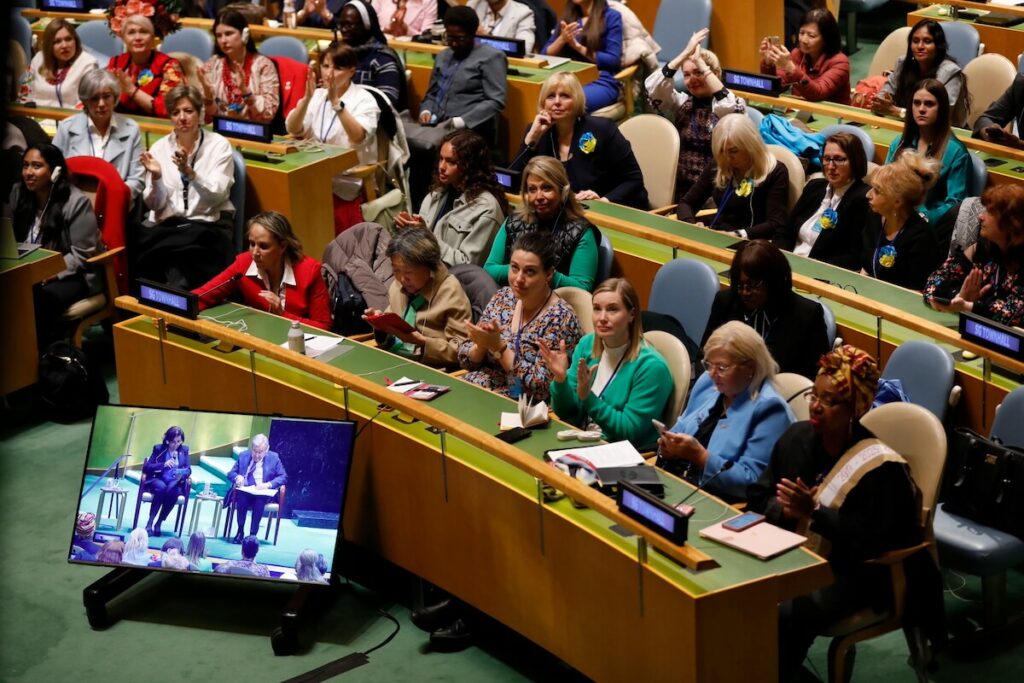
Soumya Mishra, a feminist practitioner and researcher, shared a tweet highlighting the lack of visibility of queer and neurodivergent perspectives from India. When digitalisation brought in accessibility for queer disabled people, the inaccessibility of spaces like the CSW meant that these critical ideas of divergent accessibility were being excluded.
When it comes to technological innovation, Yande specified the importance of including gender-diverse people in the design and implementation stages itself. In an era where new technologies are reshaping future trajectories every day, mitigation of potential negative impacts is important. Effective consultations for participatory decision-making is a crucial first step when seeking to understand gender-based insecurity caused by technology.
Although several pilot virtual conferences have been successful, most conferences still continue to use up critical funding and resources, while creating unnecessary greenhouse emissions from flying. Ironically, digital pathways for conducting the conference itself were not democratised in nearly the same way as consultations were. While youth consultations by organisations like Feminist Manch were largely effective, such digital spaces could have also been created for civic participation in the wider conference itself.
Paving a sustainable way forward
Policy spaces and platforms such as the CSW must become more inclusionary in their outreach, infrastructure and public participation. Yande asserted the need for “youth and adolescent inclusion and capacity-building” in the context of international diplomacy. She called upon member states to provide the necessary funding for youth activists’ participation. With the climate crisis’ impacts predicted to worsen over time, younger generations must have a say in the decisions that will fundamentally shape their own futures.
Also Read: Consumerism, Environmental Degradation, And Their Disproportionate Effects On Women
When it comes to technological innovation, Yande specified the importance of including gender-diverse people in the design and implementation stages itself. In an era where new technologies are reshaping future trajectories every day, mitigation of potential negative impacts is important. Effective consultations for participatory decision-making is a crucial first step when seeking to understand gender-based insecurity caused by technology.
Moreover, the well-being and protection of people using this technology must be prioritised—recognising that structurally-excluded needs must be brought to the forefront.
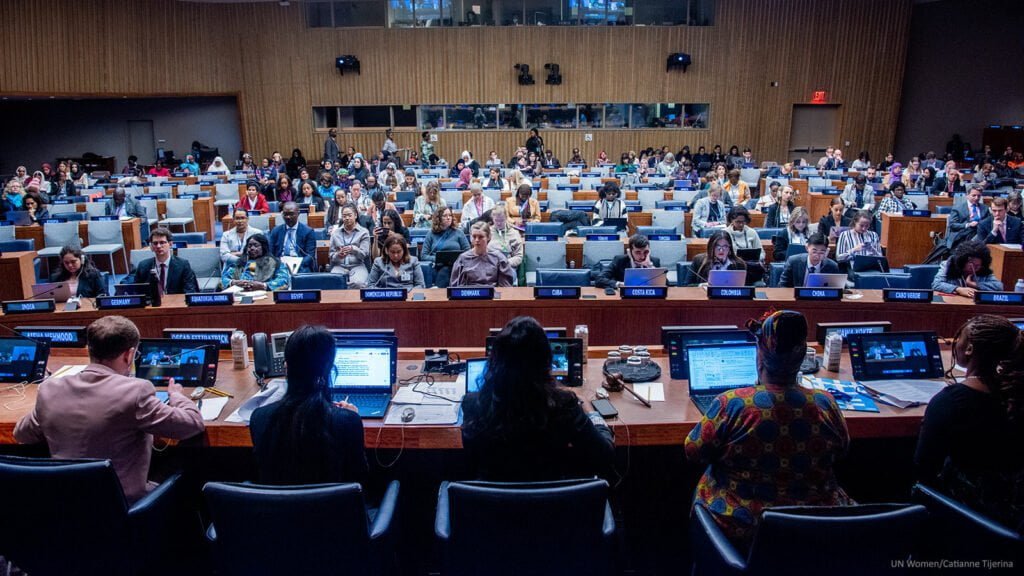
“To address these challenges, it’s essential to promote digital rights for all individuals, regardless of gender identity or expression.” Lekha points out, “This can include initiatives to promote digital literacy, support for community-based organisations working on digital inclusion, and advocacy for policies and regulations that ensure equitable access to digital resources.”
Critically, we must shift our understanding of what constitutes technology, the ways in which it shapes communication, and the ecological impacts of these manifestations. Policies and programmes that aim to strengthen literacy and access must involve not just gender-responsive frameworks, but inclusionary models that centre sustainability as means of achieving intersectional climate justice.
